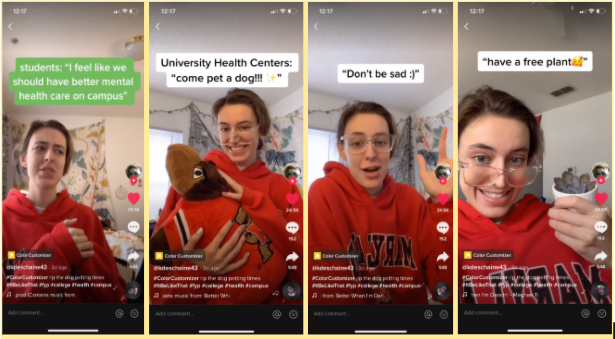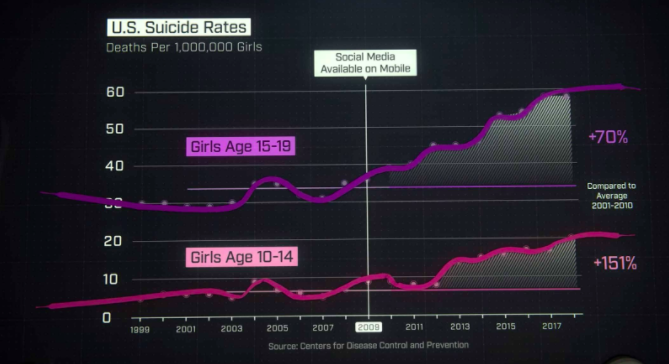We may not be fighting world wars, but our generation has lived through mass school shootings, the aftermath of 9/11, immigration shutdowns, COVID-19, one global recession, another global recession, polarizing politics, climate change tensions, and extreme racial issues.
I wouldn’t blame our generation for having issues.
These are things that need concrete, innovative solutions. Pet therapy, yoga, and meditation aren’t going to make problems disappear. It’s no wonder we’re still looking for real solutions in 2020.

In short, there is a lack of a good supply chain for providing real mental healthcare. As stigma decreases across different areas of the world, solution providers are caught unprepared. Wait times to get an appointment with a therapist on campus in the US and Europe averages anywhere between 2 to 3 weeks. Accessibility of solutions for other age groups isn’t fantastic either. According to the CDC, 40% of all US adults were struggling with adverse mental health and substance abuse issues in June 2020. This doesn’t even begin to take into account the stigma in other countries to even report mental health struggles.
As an engineer, I hate to say this—the numbers are not indicative of the real magnitude of the problem. It is far worse than what’s being reported.
For the sake of optimism, let’s assume we solve all accessibility issues. Even as we come up with solutions to these problems, we create new ones every day—for anyone who’s noticed the hype behind the Netflix documentary, ‘The Social Dilemma’, cyberbullying and the use of technology to manipulate human psychology to make profits—is in full effect now. We can’t escape that reality.

What we need is a real solution that attacks the fundamental issue: access to real (mental) health care at a massive scale. A system that can deliver real solutions, and bring increasingly effective ones every day to ever changing problems.
That is the superpower that technology has, and that’s the type of real solution we’re trying to build at FullCircle.

Why can’t mental health be given the same “respect” as physical health?
There has to be a way to quantify mental health, just like physical health. Right now, mental health is self-reported, subjective, and open to interpretation. As long as we don’t understand something well enough to quantify it, we will continue to fumble with finding solutions.
The idea of using smartphone data to study behavioral patterns, social interactions, physical mobility, motor activity, and speech production, among other things was first introduced in 2015 by Jukka Pekka, Finland. At FullCircle, we’re developing and testing machine learning and data science models that will help us detect mental health issues and alert relevant people before it’s too late. Our interactions with digital devices can reveal the signs of underlying mental distress that may not even be apparent to your closest friends and family sometimes. We recently launched our first prototype model to a small group of 60 people, and are making good progress with it.
With our team of psychology and neuroscience students—as well as designers and engineers—we hope that this first step for us will help redefine how we view the importance of mental health in line with physical health.
Why are younger people complaining more? Isn’t mental health cool now?
Let’s try to look at this question with another question: what is the first image that pops up in your mind when someone says “mental health”?
Clinical, depressing blues, and maybe a therapist sitting in an old armchair: tedious procedures, time-intensive sessions, and largely financially and geographically inaccessible for a majority of people.
In short: Boring.
Now let’s think about what people actually use every day: instant Instagram and its visual elements, trendy TikTok, and social Snapchat to name a few. Young peoples’ definition of sexy today is 24*7 accessibility, equality, and a sense of connection—even if it comes from the world online. Why can’t we make mental healthcare cool?
With the technologies we’ve created at FullCircle, we consider it our responsibility to make things people would actually want to use. If you look at Teamfullcircle.org you’ll see what we mean.
What if we made asking for help easy? What would the world look like?
That would be a dream world of unicorns, cotton candy, hugs- a world that our team dreams to be able to create! If everyone had friends and communities that made it easy to ask for help- no matter what, or how bad the situation—we strongly believe that we can change the current state of world affairs right now.
That’s the vision our team has at FullCircle.


